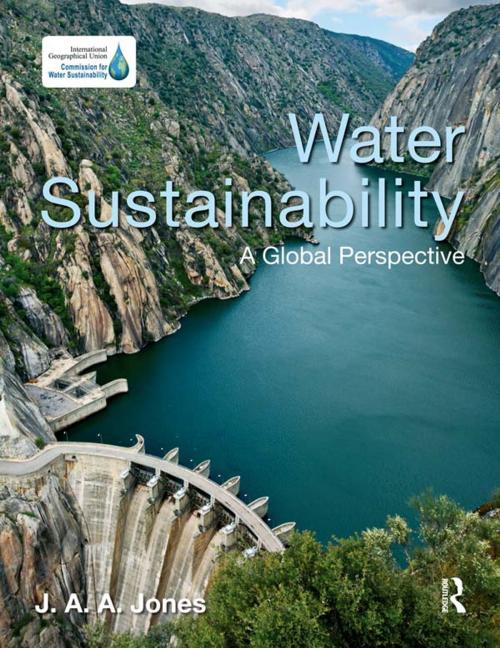Water Sustainability
A Global Perspective
Nonfiction, Science & Nature, Science, Earth Sciences, Geography, Social & Cultural Studies, Social Science, Human Geography| Author: | J.A.A. Jones | ISBN: | 9781134672073 |
| Publisher: | Taylor and Francis | Publication: | April 8, 2014 |
| Imprint: | Routledge | Language: | English |
| Author: | J.A.A. Jones |
| ISBN: | 9781134672073 |
| Publisher: | Taylor and Francis |
| Publication: | April 8, 2014 |
| Imprint: | Routledge |
| Language: | English |
Using the latest mapping techniques, J.A.A. Jones, Chair of the IGU Commission for Water Sustainability, examines water availability, the impact of climate change and the problems created for water management worldwide as well as possible solutions.
Water Sustainability: A Global Perspective is one of the first textbook to meld the physical and human aspects affecting the world's water resources.
Part One outlines the challenges and investigates the human factors: population growth; urbanization and pollution; the commercialization of water, including globalization and privatization; and the impacts of war, terrorism and the credit crunch.
Part Two examines the physical aspects: the restless water cycle, the impact of past and future climate change and the problems change and unreliability create for water management.
Part Three discusses current and future solutions including improved efficiency and water treatment systems, desalination, weather modification and rainwater harvesting, and improved legal and administrative frameworks.
Jones concludes by asking how far technical and financial innovations can overcome the limitations of climatic resources and examining the human and environmental costs involved in such developments.
This book is the ideal text for any student of water sustainability whether approaching the subject from the point of view of international relations, geography or environmental management.
Using the latest mapping techniques, J.A.A. Jones, Chair of the IGU Commission for Water Sustainability, examines water availability, the impact of climate change and the problems created for water management worldwide as well as possible solutions.
Water Sustainability: A Global Perspective is one of the first textbook to meld the physical and human aspects affecting the world's water resources.
Part One outlines the challenges and investigates the human factors: population growth; urbanization and pollution; the commercialization of water, including globalization and privatization; and the impacts of war, terrorism and the credit crunch.
Part Two examines the physical aspects: the restless water cycle, the impact of past and future climate change and the problems change and unreliability create for water management.
Part Three discusses current and future solutions including improved efficiency and water treatment systems, desalination, weather modification and rainwater harvesting, and improved legal and administrative frameworks.
Jones concludes by asking how far technical and financial innovations can overcome the limitations of climatic resources and examining the human and environmental costs involved in such developments.
This book is the ideal text for any student of water sustainability whether approaching the subject from the point of view of international relations, geography or environmental management.















